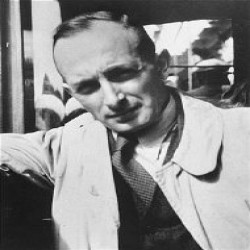
Adolf Eichmann
| Date of Birth | : | 19 Mar, 1906 |
| Date of Death | : | 01 Jun, 1962 |
| Place of Birth | : | Solingen, Germany |
| Profession | : | Army Officer |
| Nationality | : | Austrian, German |
Adolf Eichmann German high official who was hanged by the State of Israel for his part in the Holocaust, the Nazi extermination of Jews during World War II.
Early life and education
Otto Adolf Eichmann, the eldest of five children, was born in 1906 to a Calvinist Protestant family in Solingen, Germany. His parents were Adolf Karl Eichmann, a bookkeeper, and Maria (née Schefferling), a housewife. The elder Adolf moved to Linz, Austria, in 1913 to take a position as commercial manager for the Linz Tramway and Electrical Company, and the rest of the family followed a year later. After the death of Maria in 1916, Eichmann's father married Maria Zawrzel, a devout Protestant with two sons.
Eichmann attended the Kaiser Franz Joseph Staatsoberrealschule (state secondary school) in Linz, the same high school Adolf Hitler had attended 17 years before. He played the violin and participated in sports and clubs, including a Wandervogel woodcraft and scouting group that included some older boys who were members of various right-wing militias. His poor school performance resulted in his father's withdrawing him from the Realschule and enrolling him in the Höhere Bundeslehranstalt für Elektrotechnik, Maschinenbau und Hochbau vocational college. He left without attaining a degree and joined his father's new enterprise, the Untersberg Mining Company, where he worked for several months. From 1925 to 1927 he worked as a sales clerk for the Oberösterreichische Elektrobau AG radio company. Next, between 1927 and early 1933, Eichmann worked in Upper Austria and Salzburg as district agent for the Vacuum Oil Company AG.
During this time, he joined the Jungfrontkämpfervereinigung, the youth section of Hermann Hiltl's right-wing veterans movement, and began reading newspapers published by the Nazi Party. The party platform included the dissolution of the Weimar Republic in Germany, rejection of the terms of the Treaty of Versailles, radical antisemitism, and anti-Bolshevism. They promised a strong central government, increased Lebensraum (living space) for Germanic peoples, formation of a national community based on race, and racial cleansing via the active suppression of Jews, who would be stripped of their citizenship and civil rights.
Early career
On the advice of family friend and local SS leader Ernst Kaltenbrunner, Eichmann joined the Austrian branch of the Nazi Party on 1 April 1932, member number 889,895. His membership in the SS was confirmed seven months later (SS member number 45,326). His regiment was SS-Standarte 37, responsible for guarding the party headquarters in Linz and protecting party speakers at rallies, which would often become violent. Eichmann pursued party activities in Linz on weekends while continuing in his position at Vacuum Oil in Salzburg.
A few months after the Nazi seizure of power in Germany in January 1933, Eichmann lost his job due to staffing cutbacks at Vacuum Oil. The Nazi Party was banned in Austria around the same time. These events were factors in Eichmann's decision to return to Germany.
Like many other Nazis fleeing Austria in the spring of 1933, Eichmann left for Passau, where he joined Andreas Bolek at his headquarters. After he attended a training programme at the SS depot in Klosterlechfeld in August, Eichmann returned to the Passau border in September, where he was assigned to lead an eight-man SS liaison team to guide Austrian National Socialists into Germany and smuggle propaganda material from there into Austria. In late December, when this unit was dissolved, Eichmann was promoted to SS-Scharführer (squad leader, equivalent to corporal). Eichmann's battalion of the Deutschland Regiment was quartered at barracks next door to Dachau concentration camp.
Aftermath
The trial received widespread coverage by the press in West Germany, and many schools added material studying the issues to their curricula. In Israel, the testimony of witnesses at the trial led to a deeper awareness of the impact of the Holocaust on survivors, especially among younger citizens.The trial therefore greatly reduced the previously popular misconception that Jews had gone "like sheep to the slaughter".
